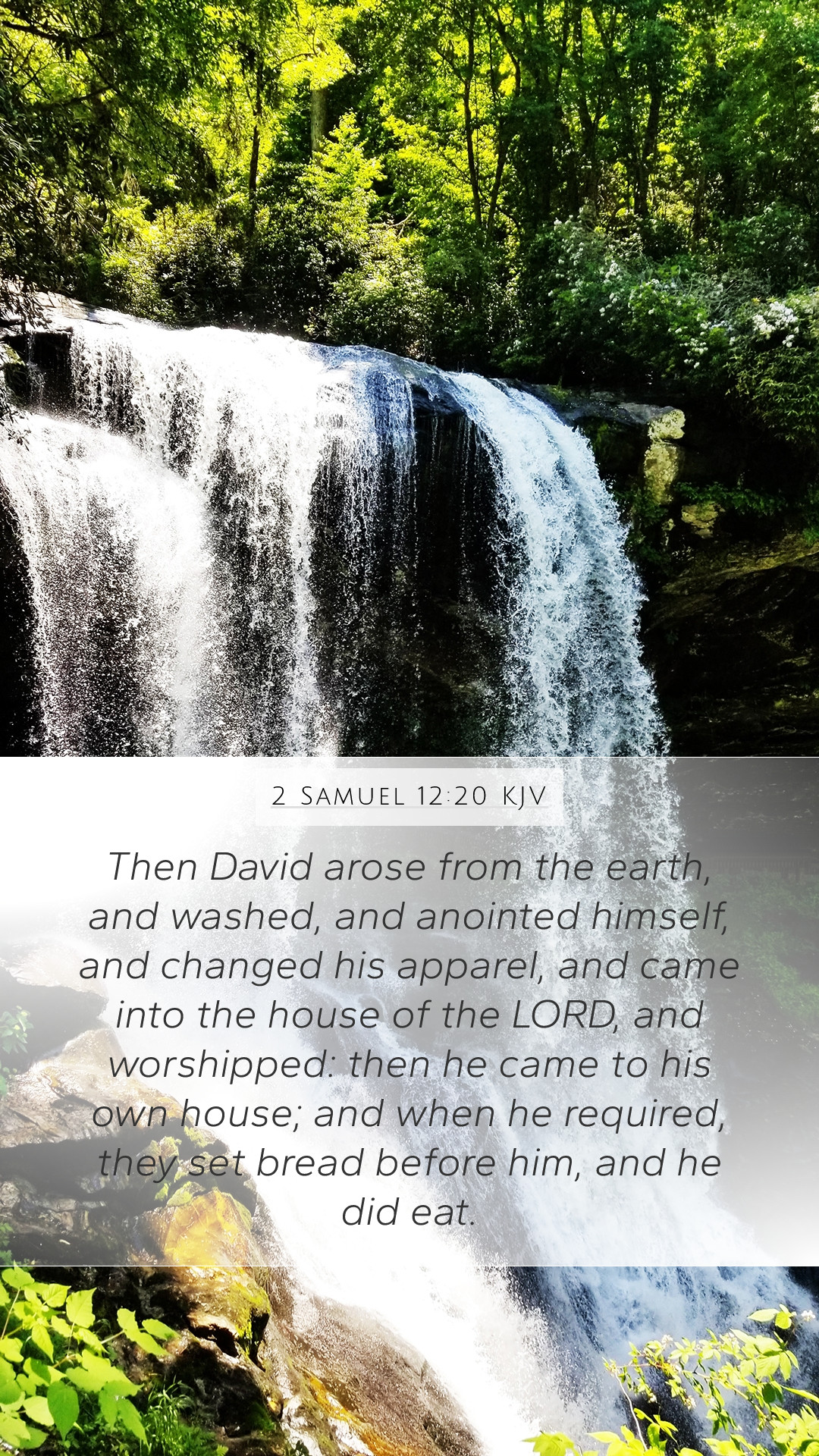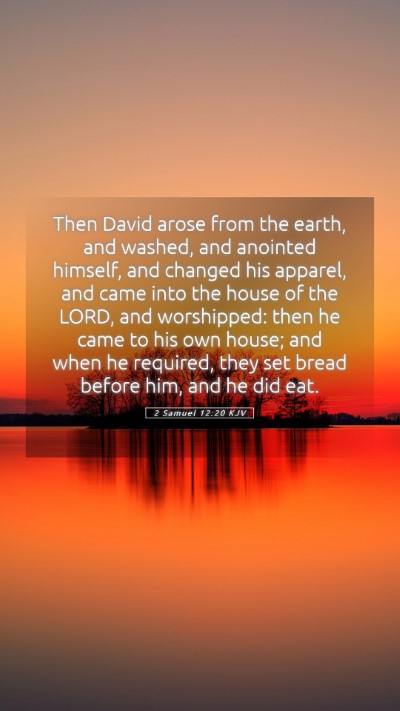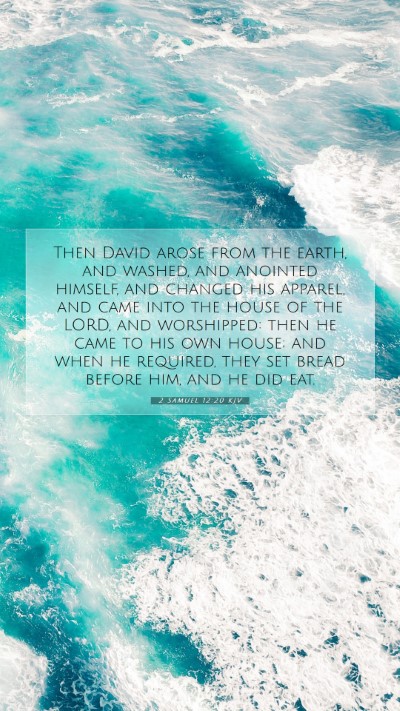Understanding 2 Samuel 12:20
Bible Verse: 2 Samuel 12:20 - "Then David arose from the earth, and washed, and anointed himself, and changed his apparel, and came into the house of the Lord, and worshipped: then he came to his own house; and when he required, they set bread before him, and he did eat."
Overview
This verse captures a significant moment in David's life following the death of his child, a result of his sin with Bathsheba. It reveals deep insights into his emotional and spiritual transformation, emphasizing themes of mourning, repentance, worship, and grace. Below, we explore the meanings, interpretations, and explanations of this passage through various public domain commentaries.
Commentary Insights
-
Matthew Henry:
Henry emphasizes David's actions as a profound shift from despair to hope. After expressing grief, David washes and prepares himself to worship, signifying that life continues despite loss. Henry notes that this mirrors the believer's journey of returning to God even after moments of profound sorrow, highlighting a potent message of resilience.
-
Albert Barnes:
Barnes points out the contrast between David's previous mourning and his subsequent act of worship. He suggests that David's actions demonstrate a recognition of God's sovereignty and the need to move forward in faith and obedience. This depicts an important model of how believers can respond to life's tragedies by seeking God through worship.
-
Adam Clarke:
Clarke describes the significance of each action David takes: washing and anointing signifies purification and preparation for divine service. Clarke explains that David's return to worship shows deep repentance and acknowledgment of God’s mercy, emphasizing the importance of seeking God in all circumstances, especially during suffering.
Key Themes and Applications
-
Mourning and Worship:
The transition from grief to worship illustrates how believers can find strength and solace in God amidst sorrow. David's actions encourage us to honor our feelings while reminding us of the importance of turning to God.
-
God's Sovereignty:
David's acceptance of his child's death and his return to worship reflect a deep trust in God’s plans, reminding believers to rest in divine wisdom, particularly when faced with adversity.
-
Resilience in Faith:
This passage exemplifies persevering faith. David chooses to focus on God rather than dwelling on his loss, teaching believers to look forward in hope, seeking God’s presence in times of trial.
Cross References
- Psalm 51: A psalm of repentance by David, providing insight into his heart after sin.
- 2 Samuel 12:16: David's fasting for his child highlights his intense grief.
- Romans 8:28: God works all things for the good of those who love him, comforting in times of loss.
Conclusion
This analysis of 2 Samuel 12:20 serves as an important reflection on the nature of grief and the necessity of returning to worship. It encourages believers to seek deeper understanding through Scripture analysis and Biblical exegesis, fostering an growth in their personal Bible study experiences.


